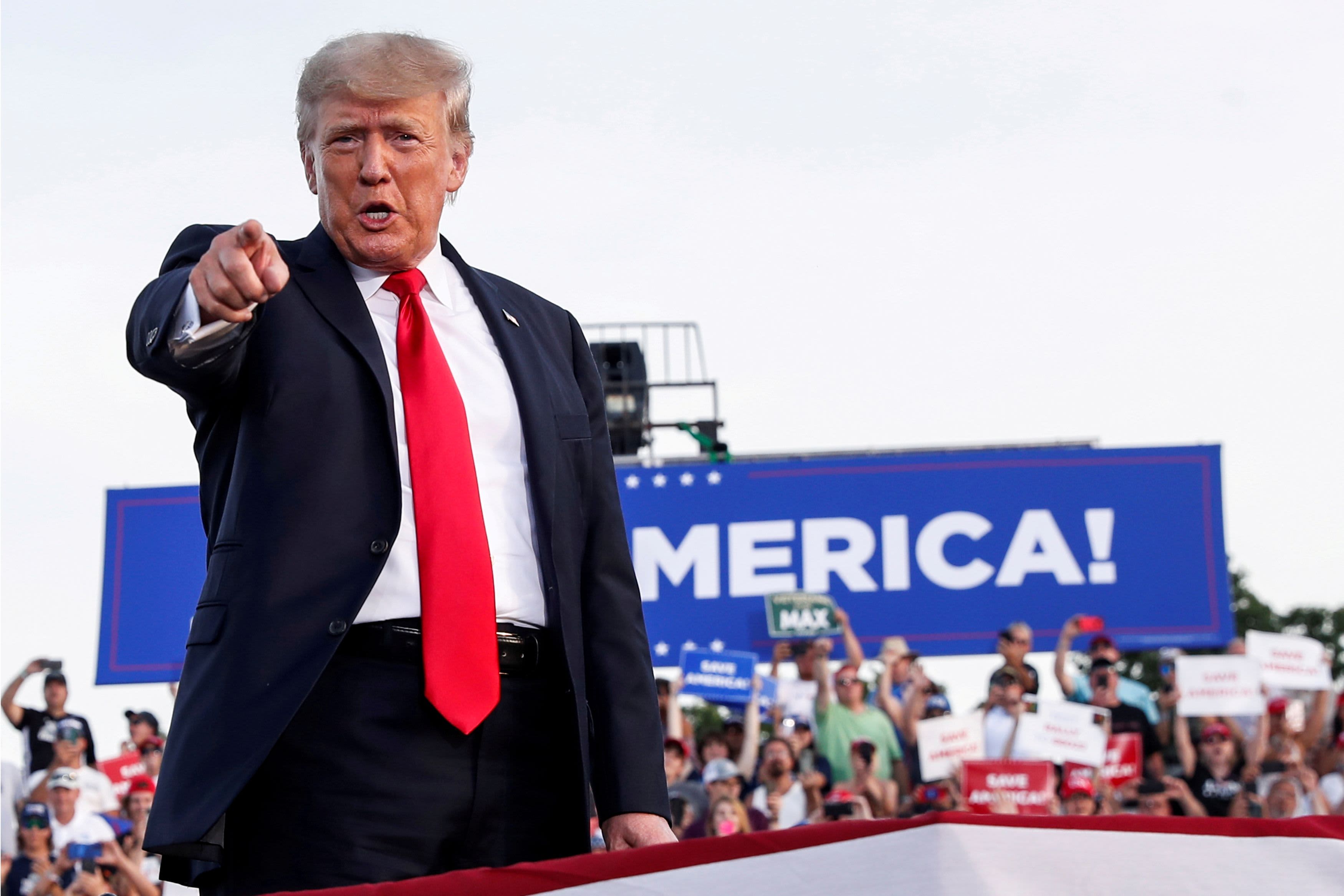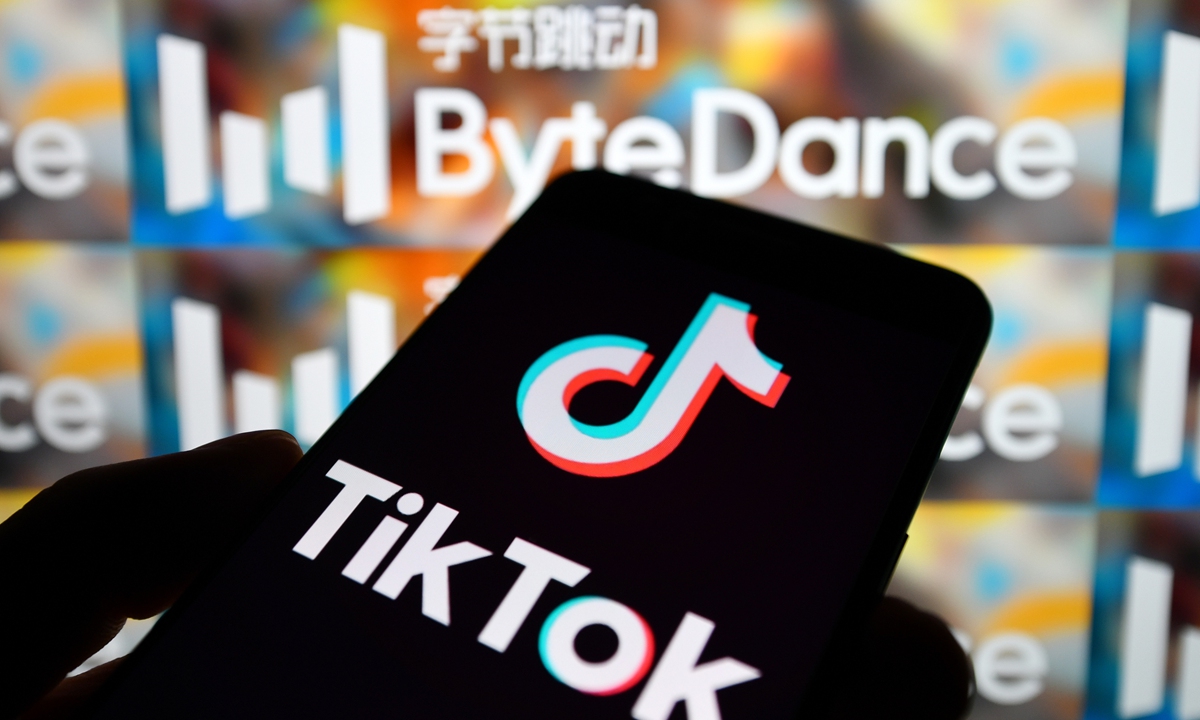Trump’s TikTok ambush opens a new front in Tech war against China
Trump’s tiktok ambush
By following TikTok, the U.S. is growing a battle against Beijing utilizing Chinese-style limitations on tech organizations in a move that might have colossal implications for the world’s greatest economies.
The Trump organization’s danger to boycott ByteDance Ltd’s. viral high schooler phenom and other Chinese-claimed applications could altogether hamper their entrance worldwide client information, which is a tremendously significant asset in an advanced web economy. Any U.S. choice, which Secretary of State Michael Pompeo said would come “without further ado,” is probably going to be trailed by a comparative weight crusade that incited a few partners to boycott Huawei Technologies Co. from 5G systems.
Regardless of whether TikTok’s American tasks are purchased by Microsoft Corp., the scene is the perfection of a bifurcation of the web that started when China walled off its online circle years back, making an imaginary world where Tencent Holdings Ltd. furthermore, Alibaba Group Holding Ltd. subbed for Facebook Inc. what’s more, Amazon.com Inc.
It is additionally parting numerous in the business: Some denounce the disloyalty of qualities like free discourse and private enterprise, while others advocate taking the necessary steps to curb an international opponent and its significant-tech industry.

“This sets a perilous point of reference for the U.S.,” said Samm Sacks, an individual on cybersecurity strategy and China computerized economy at the New America think tank. “We are descending a way of techno-patriotism.”
Washington’s moves underscore how rapidly the idea of a web decoupling is turning into reality even as the world is as yet making sense of its outcomes. India demonstrated the way when it prohibited many Chinese versatile applications including TikTok and Tencent’s WeChat, while Australia and Japan are purportedly taking a gander at comparable alternatives.
At issue is who controls the information — everything from private subtleties like areas and messages to complex mined data, for example, individual profiles and online conduct. Like India, Washington stresses that TikTok could be channeling that trove to Beijing, possibly sabotaging national security by building databases on its residents.
Worryingly for Beijing, it’s indistinct where the U.S. would adhere to a meaningful boundary given the degree to which information is basic for organizations nowadays. While Washington’s checks against Huawei may have a few grounds as far as national security, the contention for forbidding TikTok is “powerless,” as indicated by Yik Chan Chin, who explores worldwide media and correspondences strategy at the Xi’an Jiaotong-Liverpool University in Suzhou, a city close to Shanghai.
“It is anything but a sensible contention — it resembles a sweeping restriction on Chinese organizations,” she said. “In what capacity can Chinese organizations ever work together in America?”
Cautious what you wish for
President Xi Jinping may have himself to a fault. China has since a long time ago advocated cyber sovereignty, closing out administrations like Twitter, constraining unfamiliar firms to make sure about nearby accomplices and wholesalers in regions from portable games to cloud benefits or diminishing interest in territories, for example, internet banking. Microsoft Corp’s. Bing and LinkedIn, which both edit content in China, remain the main significant web search tool and informal organization permitted to work in China.

“We should regard each nation’s own decision of their web improvement way and the board model, their web open arrangement and the option to take part in overseeing worldwide the internet,”
Xi told participants at a prominent web meeting in 2015.
“There ought to be no digital authority, no meddling in others’ interior issues, no captivating, supporting or impelling digital exercises that would hurt the national security of different nations.”
Presently it’s China that needs the world to grasp its organizations and shun excessively expansive translations of national security. Chinese Foreign Ministry representative Wang Wenbin said Monday the Trump organization “has been extending the idea of national security with no proof and just dependent on the assumption of blame,” and called for it to “make an open, reasonable, just and non-oppressive condition for organizations all things considered.”
China’s previous explanations on digital power mirrored its shortcoming at that point, and that view has developed generously from that point forward, as per Zhao Ruiqi, bad habit overseer of the School of Marxism at the Communication University of China in Beijing.
‘Split the web’
“Trump’s move is taking steps to part the web, and this is something the world ought to maintain a strategic distance from,” Zhao said. “Nations ought to plunk down and talk about the restrictions of national security with regards to web administration.”
While a portion of Trump’s activities is respected to be roused by re-appointment contemplations, others state following TikTok has further criticalness. As of now the world’s most important startup with a sticker price possibly of $140 billion, ByteDance and its most popular item typifies the can-do soul of the age of customer tech organizations that may follow Alibaba and Tencent.
By snaring countless dependent youths from New Delhi to Denver, organizer Zhang Yiming’s demonstrated an association of business visionaries how a Chinese startup can make it to easy street and some time or another stand side by side with America’s biggest partnerships. Today, it serves some 1.5 billion month to month dynamic clients over a group of applications extending from web-based social networking to games and instruction.

“TikTok represents Chinese tech organizations’ capacity in calculations, computerized reasoning and the capacity to become a web sensation and increase benefits inside a brief timeframe,” said Wang Sixin, an educator at the Communication University of China.
Presently U.S. limitations would constrain an unexpected of best in class stars in territories from gaming to live streaming and media to reevaluate plans to grow all-inclusive similarly as they were beginning to pick up foothold abroad. While TikTok is the principal Chinese-made web access to succeed all around, there is a large group of others not far behind.
Among the most downloaded Chinese applications in recent months in the U.S. is Joyy Inc. stages Bigo and Likee and Alibaba’s AliExpress shopping application, as per Sensor Tower. TikTok rival Likee, which additionally focuses on it works from outside China, this year made the U.S. the main concern for its worldwide extension, with plans to empty more cash and individuals into the district.
Propelled in May, short video organization Kuaishou’s Zinn has topped U.S. application downloads on occasion. Also, WeChat — utilized by more than a billion people around the world — is famous among the Chinese diaspora and U.S. chiefs with dealings on the planet’s No. 2 economy.
On the off chance that the organization concludes information is the key determinant, at that point even a portion of the world’s most famous games may get trapped. Tencent’s Call of Duty: Mobile, co-made by Activision Blizzard Inc., PUBG Mobile, and its Supercell auxiliary’s Clash Royale are largely famous with Americans.
What Bloomberg knowledge says
Rising worldwide dangers to boycott Chinese portable applications, out of security concerns, and as reprisal because of international strains, may seriously impede the abroad development of China’s web firms. Joyy, Trip.com, Tencent, Alibaba, and NetEase may confront the greatest dangers given their worldwide desire and generally high utilization of their administrations outside China.
Like other Chinese business visionaries, Zhang should now make sense of how to continue ByteDance’s sizzling pace of development while to a great extent bound to its home market. Even though ByteDance’s first breakout hit was a news application called Toutiao, it was TikTok that pulled in a huge number of clients around the globe. With 165 million introduces, the U.S. is the application’s biggest market after India, just as its most worthwhile one regarding client spending, as indicated by Sensor Tower gauges.
/cdn.vox-cdn.com/uploads/chorus_image/image/65912528/GettyImages_1177990254.0.jpg)
It’s a stinging retreat for an organization that is attempted to offer a sanctuary for the most generously compensated man-made reasoning designers. Zhang battled to stay free from the nation’s tech triumvirate of Baidu Inc., Alibaba, and Tencent, making him an irregularity in the business.
Presently Zhang may end up on an inappropriate side of patriotism in both the U.S. also, China. With hashtags about TikTok’s U.S. scene slanting on China’s biggest microblogging stage Weibo, Zhang concealed every one of his posts from the general population after clients overflowed his record with remarks pummeling his choice to sell.
What China thinks
China’s administration impacted the U.S. for spurning the principles of worldwide exchange and business by taking steps to boycott TikTok, in Beijing’s most grounded resistance yet of ByteDance Ltd’s. viral video application.
President Donald Trump has said he’s thinking about obstructing the famous music video application, while counsel Peter Navarro cautioned of punishments for “data fighting” against the U.S. Gotten some information about the investigation, Foreign Ministry representative Wang Wenbin blamed Washington for unjustifiably singling out Chinese organizations.
“As of late governments and media in certain nations have said twofold guidelines shouldn’t be applied to web based life applications,” Wang told journalists at a customary preparation. “China’s organizations and their items have given assorted variety of decisions to U.S. customers. We trust the U.S. can regard the voice from the market to give an open, simply, reasonable business condition for unfamiliar nations and quit politicizing financial issues.”
ByteDance has become the world’s biggest startup on account of the amazing accomplishment of TikTok, which American administrators blame for representing a danger to national security by vacuuming up information. They have recommended that TikTok might be utilized as an apparatus to keep an eye on clients or spread publicity to impact the November presidential decisions, which Wang said was “absolutely baseless.”
“China isn’t keen on U.S. races,” he said on Wednesday. “We ask certain individuals in the U.S. to take a reasonable and fair view on this issue, quit utilizing state capacity to abuse Chinese organizations.”
Trump can handicap ByteDance’s valued resource. The president could add TikTok to the U.S. substance list, which would force American organizations, for example, Apple Inc. also, Alphabet Inc’s. Google to drop the administration from their application stores. The U.S. Council on Foreign Investment in the U.S., otherwise called CFIUS, is additionally looking into ByteDance’s 2017 acquisition of the business that became TikTok and could drive a side project.
That “disregards the receptiveness and straightforwardness of WTO rules,” Wang said Thursday, rehashing a typical counter embraced by Beijing.
ByteDance has found a way to separate itself from TikTok and shore up relations in Washington, delegating previous Walt Disney Co. leader Kevin Mayer CEO in May and expanding campaigning spending. It’s likewise put aside a $200 million store to help its most well known U.S. clients make professions out of their interest in the administration.






